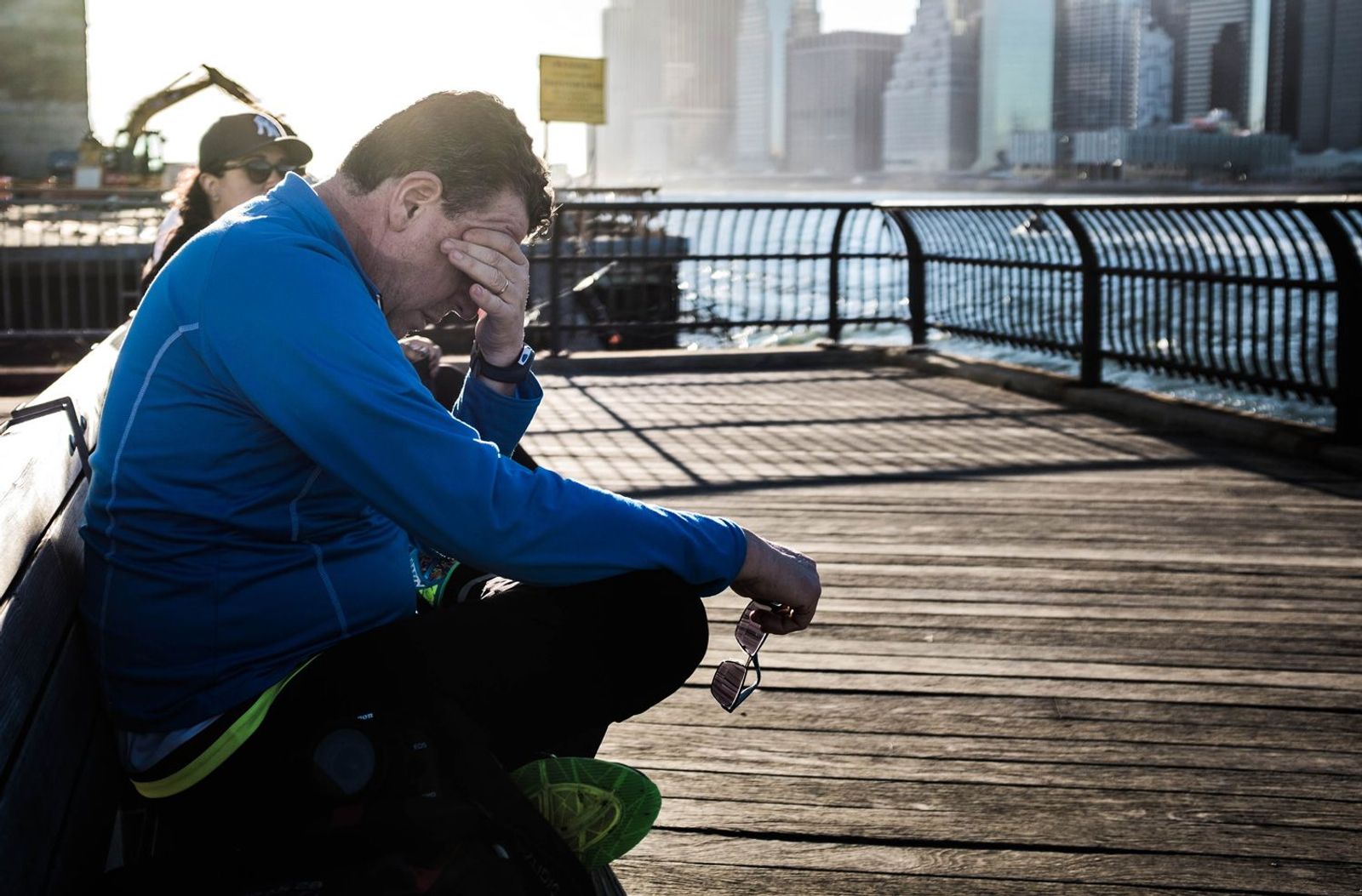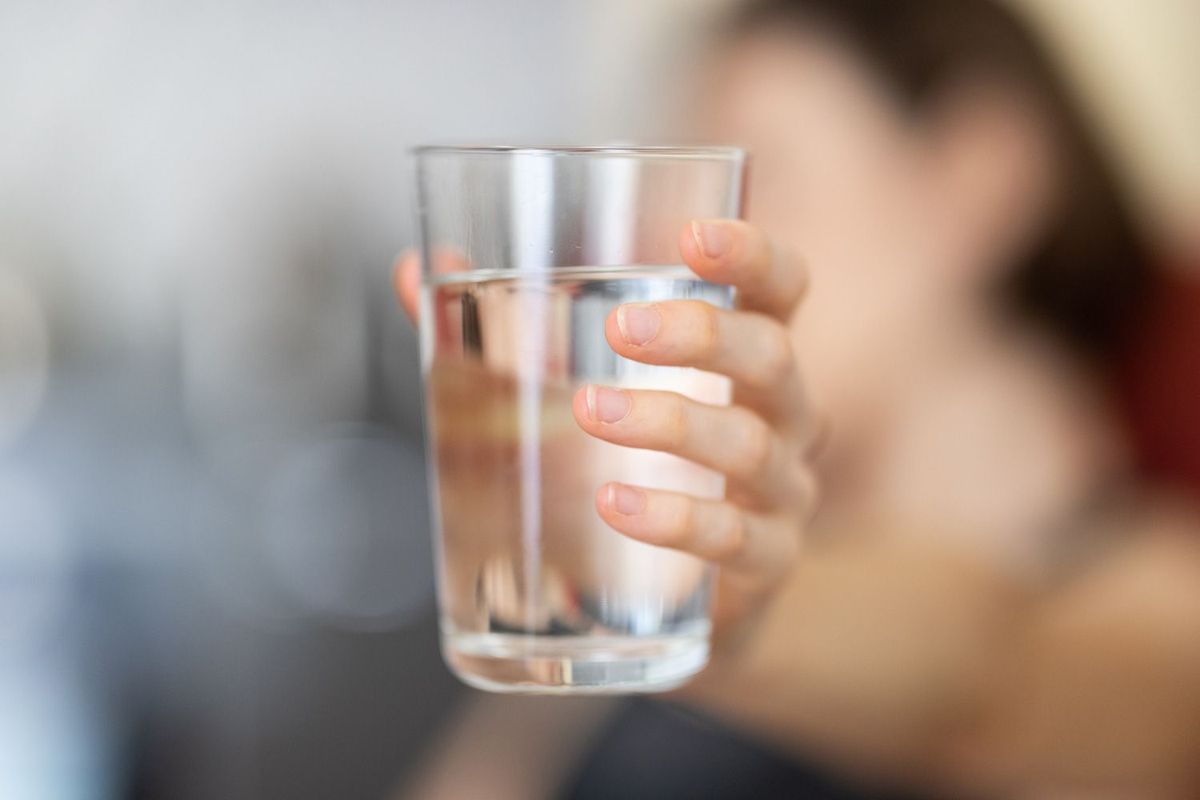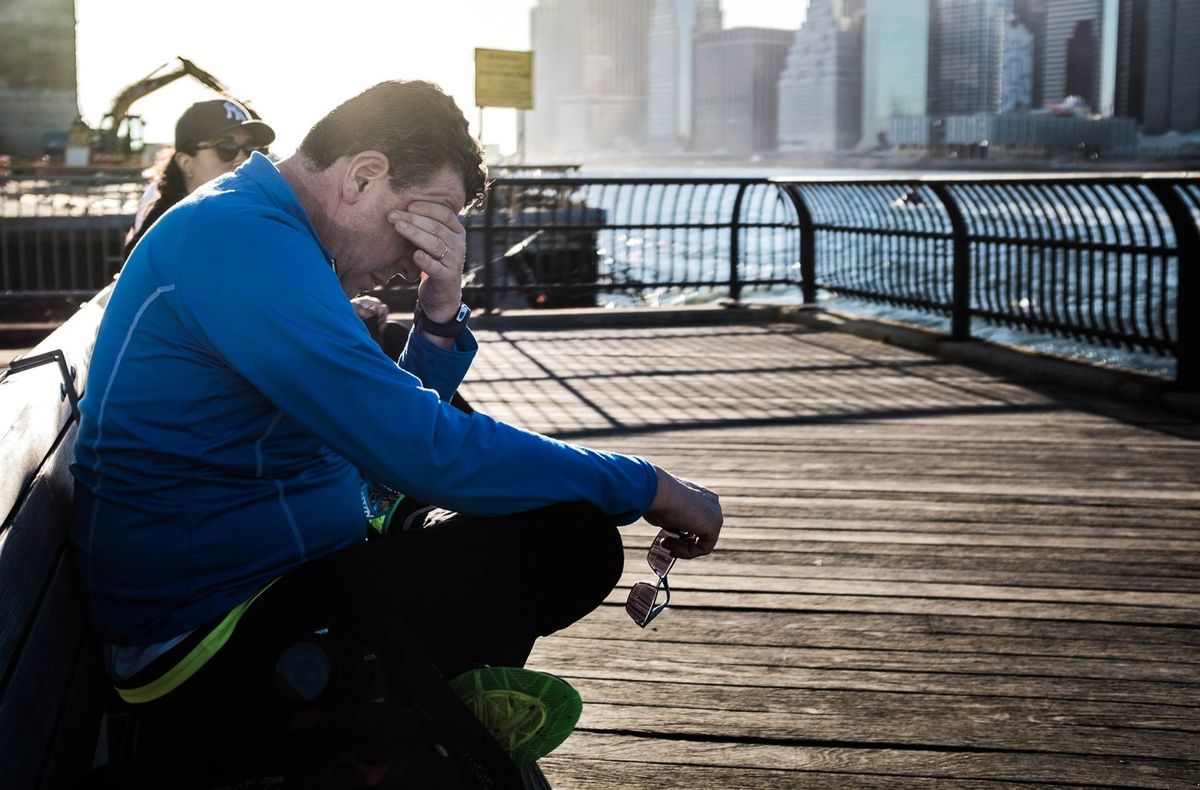
5 causes of headaches during sport
How they arise and how you can counteract them
You've probably experienced this at some point during sport: during or after your workout, a sudden, stabbing headache sets in. Have you wondered what the cause is and what you can do about it? We explain the causes of headaches during sport and give you tips on how you can relieve acute pain and prevent it.
Why do I get headaches during sport and how do I relieve them?
There are various reasons why you complain of a headache after exercising. These headaches - also known as exertion headaches - are classed as primary headaches. This means that the trigger for this pain is not an illness, but is caused by something else. Exertion increases the pressure of the blood vessels in your skull.
We have summarised the most common causes and explained how you can avoid this type of headache. In all cases, you should interrupt your training and at least take a break.
1. you drank too little during sport
Did you know that lack of hydration is one of the most common causes of headaches? During your training session, this deficit is exacerbated by exercise, which means you will get a headache even faster if you have not drunk enough during or before your training session. Dehydration is often the result.
How to avoid this type of headache
Always try to maintain your hydration levels throughout the day. Drink enough before training so that you can make up for any lack of fluids during your workout. If you are doing particularly strenuous sport, always have enough water to hand. It is advisable to reach for still water. This will prevent carbon dioxide from bloating your stomach and causing side stitches, for example.

2. you adopt an incorrect posture during training
Incorrect posture can also cause headaches - and not just during sport. This is referred to as tension headaches. These are also often caused by poor posture in the office. This leads to tension, which ultimately results in headaches.
How to relieve tension headaches
When exercising, you can counteract this by making sure you do your workout correctly. This applies to any sport - whether lifting weights, swimming, running or working out at home with the rowing machine, the vibration plate or the cross trainer!
As your muscles are tense, you should focus on relaxation. This can be a massage or treatment with warming cream or plasters. In addition, special exercises to relieve tension in the back or neck often help to provide quick relief. Also make sure you breathe correctly. This not only helps you to perform at your best, but also ensures that your body is supplied with sufficient oxygen, which ultimately prevents headaches.
3. the training was too strenuous for you
Headaches after exercise are also increasingly caused by overexertion. You have put too much strain on your body during your workout. Typical symptoms are pulsating and migraine-like headaches. Your body is telling you that the strain it was subjected to was too great. The pain often occurs because you are performing unusual movements and are therefore not yet in top form. Exerting yourself too much can also lead to vomiting.
How to prevent and relieve headaches caused by overexertion
Next time, take your workout a little easier and reduce the intensity of your training session. You can gradually increase the intensity as your body tolerates it. So always listen to your body and what training intensity is good for you.

4. your body does not have enough energy reserves for the workout
Does your workout make you feel tired instead of motivated? In addition to headaches, you may also have circulatory problems or feel sick during your workout? These symptoms indicate that you don't have enough energy reserves for your workout - this results in low blood sugar levels.
How to replenish your energy reserves and relieve headaches
Rest and try to replenish your energy reserves. Foods with a high carbohydrate content, such as oatmeal, are particularly useful here. Bananas, for example, also help to restore your energy levels thanks to their fructose. Before training - but not immediately before - you should eat nutrient-rich foods so that you can complete your workout successfully.
5. your workout in the sun was too much for your body
Even without sport, extreme heat causes increased headaches. This is because the high temperatures cause your body's fluid balance to be depleted faster than usual. This needs to be replenished with sufficient fluids. It's not just the heat, but the sun itself that often triggers headaches. As sport and exercise generally deplete your fluid reserves, sport in the sun intensifies this effect.
How to avoid headaches due to heat
We advise you to avoid training in the middle of the sun and to listen to your body. Our tips on jogging in the heat will certainly help you here.
Headaches after sport are not uncommon - the causes can vary. Whether it's too little fluid, overexertion with exertion headaches, high temperatures, insufficient energy reserves or incorrect posture: give yourself and your body a break in any case and prevent these pains with our simple tricks.
